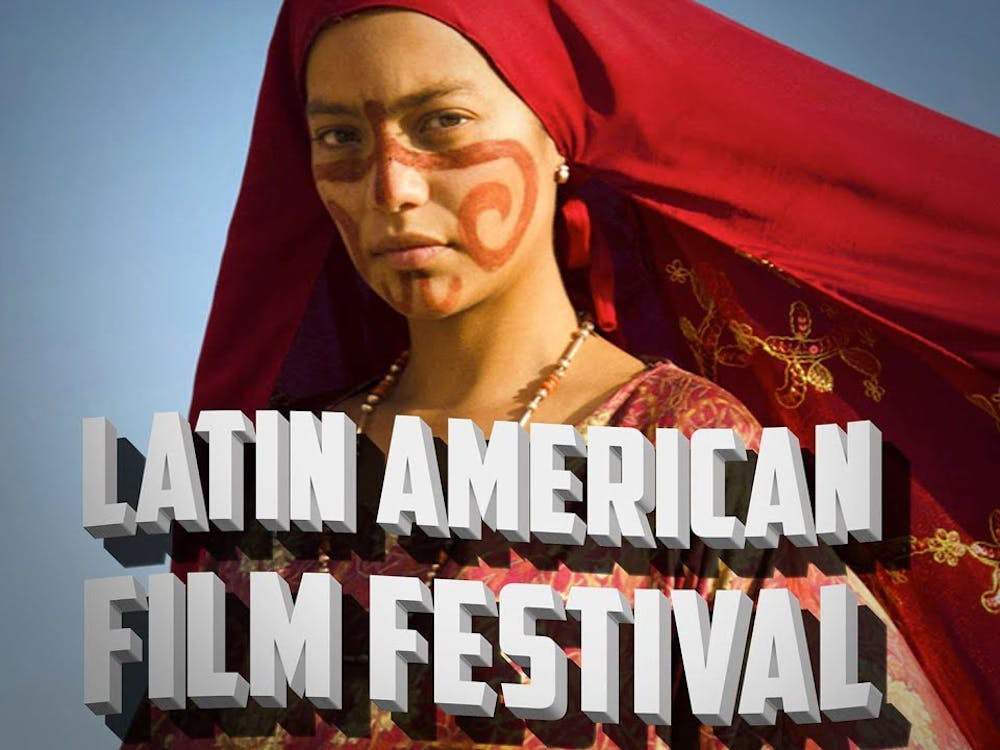This year, the North Carolina Latin American Film Festival turns 34. The 2019 NCLAFF, which is organized by the University of North Carolina-Chapel Hill and Duke University Consortium in Latin American and Caribbean Studies, runs from Oct. 20 to Nov. 2. More than 30 feature films and shorts will be shown throughout the Triangle area, and all screenings are free and open to the public.
To mark the opening of the 2019 NCLAFF, the UNC-Duke Consortium and Duke University’s Program in the Arts of the Moving Image hosted an opening night conversation and film screening at the Rubenstein Arts Center. The conversation, “Three Decades of Latin American Film Festivals in the U.S.A.,” featured special guests José A. (Pepe) Vargas, the director and founder of the Chicago Latino Film Festival and Sharon Mújica, who founded the NCLAFF in 1986. Also in attendance was Miguel Rojas-Sotelo, the current director of the NCLAFF.
The Chronicle had the opportunity to speak with Vargas, Mújica and Rojas-Sotelo about the NCLAFF and Latin American film. The interviews have been edited and condensed for clarity.
Pepe Vargas founded the Chicago Latino Film Festival in 1985, which has since grown into the largest Latin American film festival in the United States. Vargas will be holding a master class on campus Oct. 22 to discuss “Legal Issues for Performing Arts” alongside Daniel Ellison, a lecturing fellow in the Duke Theater Studies department.
The Chronicle: Why do you think it is important to have film festivals that recognize Latin American films in particular?
Pepe Vargas: Film is such a powerful medium through which the artist can really get a sense of what is going on in each country. So that’s what I do. I show who we are as a people: people who laugh and enjoy and suffer but are also full of vitality and struggle as time goes by and things start changing. Film can reflect this new reality.
TC: Is there anything else you want to comment on about why you think this film festival is important?
PV: It gives people the opportunity, without leaving North Carolina, to travel to Chile, to Argentina, to Guatemala, to Colombia. That’s the beauty of this: traveling throughout the Latino universe without leaving their own living room. The only thing they have to do is just come from home to a theater like this, watch a film and get to know a little bit.
Since founding the NCLAFF, Sharon Mújica has watched the film festival expand to its current state. Over more than three decades, the festival has shown films in 13 languages and from 26 countries of origin.
TC: How has this festival evolved over the years?
Sharon Mújica: I started it in 1987 with three films at Chapel Hill, and it was incredible the number of people who came. They came to see the films; people were always telling me, “Well, there’s no way we can find out about Latin America… we never see anything.” That’s one of the reasons why I started the film festival.
TC: What do you think sets Latin American films apart?
SM: They deal with real events, or documentaries at the time of different events. Most of the filmmakers are really looking toward educating. It’s just not for fun. The films I always try to bring, and the ones Miguel does, are educating whomever may be looking at them.
Miguel Rojas-Sotelo is the current director of the NCLAFF and teaches at the Center for Latin and Caribbean Studies at Duke University.
TC: Can you discuss this year’s theme of ‘Time Machines’?
Miguel Rojas-Sotelo: A film is a time machine itself. In the programming of this film festival, we have selected a number of films that are going back into Latin American time: 1980s, 1970s, 1950s, exploring different and important moments that have defined Latin American films today.
TC: Why is this festival important for Duke and UNC students?
MRS: It’s a bridge between the two campuses. We see each other and we relate to something. It’s a way to think collectively on a region that is so close to us and we take for granted sometimes. It’s a good way to think collectively across our differences about the different worlds we see in Latin America.
The 2019 NCLAFF will be hosting four events on Duke’s campus. “Dis.em.POWER.ed” is a weekend film event and panel on the aftermath of Hurricane Maria in Puerto Rico. “Grazing the Amazon” considers the way in which climate change and poor management of natural resources have affected the Amazon rainforest. Lastly, film screenings of “Building the American Dream” and “The Infiltrators” are about the experiences of migrant workers and the issues of Latino incarceration and the prison system. All Duke students and faculty, as well as members of the community, are encouraged to come and experience the artistry, power and multitudes of the “Latino universe.”
Get The Chronicle straight to your inbox
Signup for our weekly newsletter. Cancel at any time.

